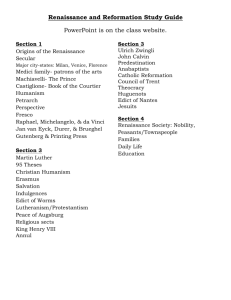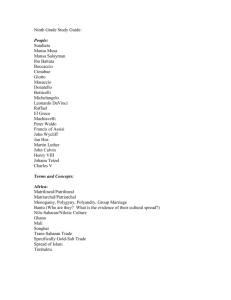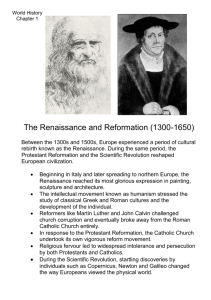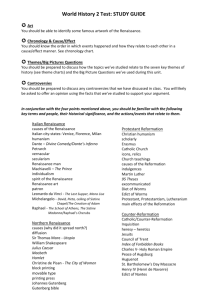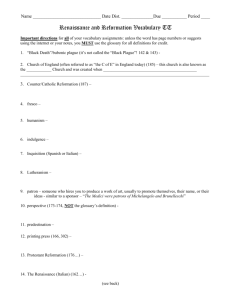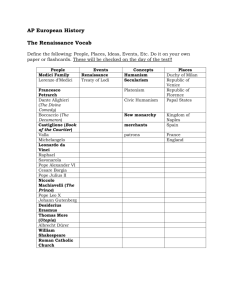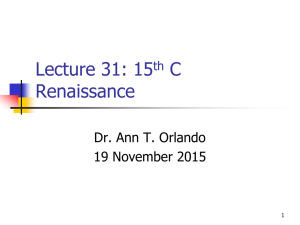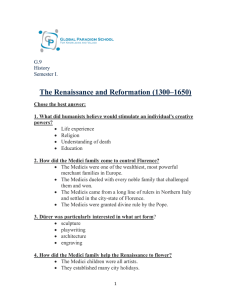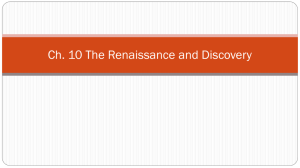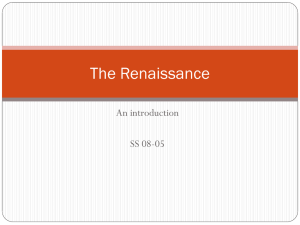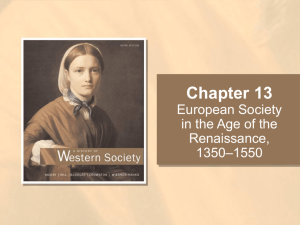Chapter 12 test
advertisement
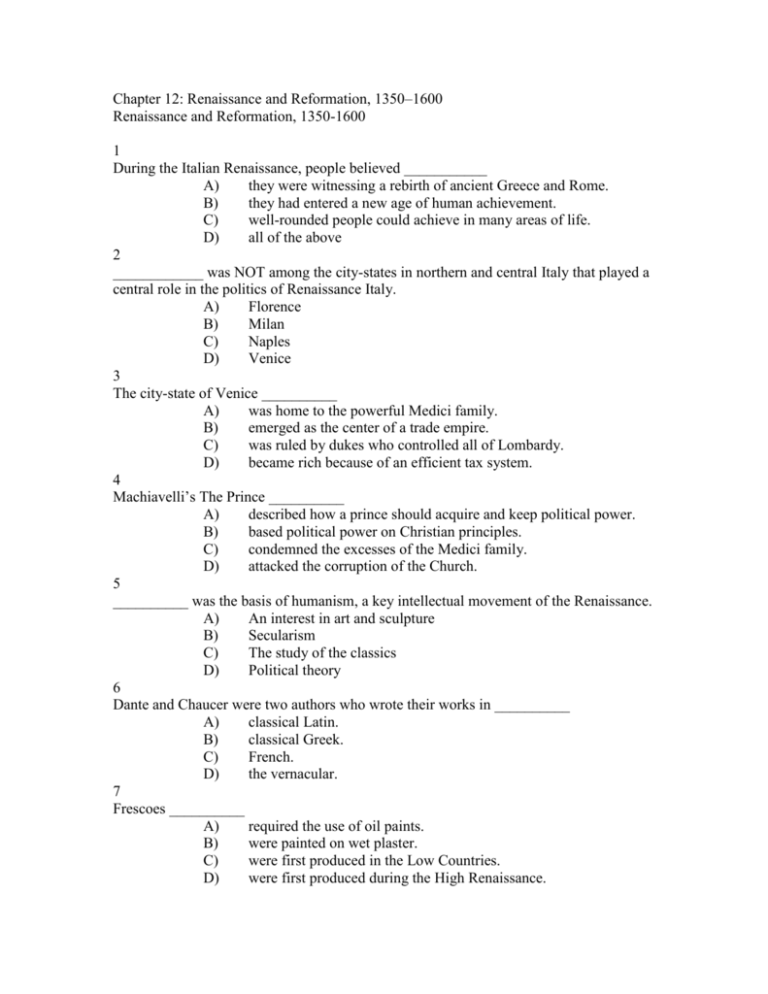
Chapter 12: Renaissance and Reformation, 1350–1600 Renaissance and Reformation, 1350-1600 1 During the Italian Renaissance, people believed ___________ A) they were witnessing a rebirth of ancient Greece and Rome. B) they had entered a new age of human achievement. C) well-rounded people could achieve in many areas of life. D) all of the above 2 ____________ was NOT among the city-states in northern and central Italy that played a central role in the politics of Renaissance Italy. A) Florence B) Milan C) Naples D) Venice 3 The city-state of Venice __________ A) was home to the powerful Medici family. B) emerged as the center of a trade empire. C) was ruled by dukes who controlled all of Lombardy. D) became rich because of an efficient tax system. 4 Machiavelli’s The Prince __________ A) described how a prince should acquire and keep political power. B) based political power on Christian principles. C) condemned the excesses of the Medici family. D) attacked the corruption of the Church. 5 __________ was the basis of humanism, a key intellectual movement of the Renaissance. A) An interest in art and sculpture B) Secularism C) The study of the classics D) Political theory 6 Dante and Chaucer were two authors who wrote their works in __________ A) classical Latin. B) classical Greek. C) French. D) the vernacular. 7 Frescoes __________ A) required the use of oil paints. B) were painted on wet plaster. C) were first produced in the Low Countries. D) were first produced during the High Renaissance. 8 The great Renaissance artists and sculptors included all of the following EXCEPT __________ A) Dante. B) Leonardo da Vinci. C) Raphael. D) Michelangelo. 9 The major goal of humanism in northern Europe was __________ A) to show people how to lead good lives. B) to spread the philosophy of Christ. C) to reform the Catholic Church. D) to encourage people to participate in civic life. 10 The chief teaching of the Protestant Reformation was that __________ A) faith and good works were necessary to gain personal salvation. B) good works alone were the key to salvation. C) only through faith in God could humans be saved. D) inner piety would bring salvation. 11 __________ was a major reason for Martin Luther’s religious reforms. A) The Church’s involvement in politics B) The military campaigns of Julius II C) The ignorance of many parish priests D) The selling of indulgences 12 __________ forced Charles V to accept the division of Christianity in Germany with the Peace of Augsburg. A) Lutheran princes B) Francis I C) Clement VII D) The Ottoman Turks
